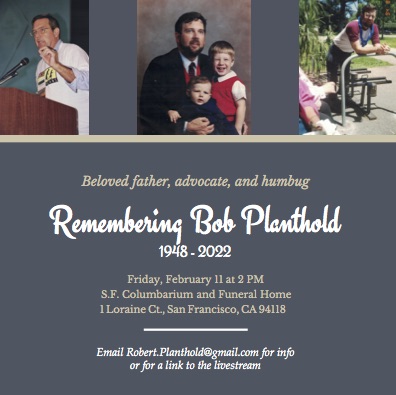by Dr. Derek Kerr : westsideobserver – excerpt
Why does the FBI manage to unearth City Hall corruption, while our watchdog agencies; the Controller’s Whistleblower Program, Ethics Commission and City Attorney’s Office cry “What happened?”
Clues emerge from a whistleblower retaliation lawsuit filed in Superior Court on behalf of the Laborers’ International Union, Local 261 (Case No. CGC-21-596956). The central claim is that the Public Utilities Commission (SFPUC), Department of Public Works (DPW) and the City Administrator’s Office had “engaged in a multi-year process to divert public funds and resources to enrich themselves and friends and family…” And, City Hall knew about it…
The impression conveyed was that the City Family views reports of corruption as nonsense to be ignored – or threats to be obliterated. That may explain why Local 261 notified the FBI and decided to sue…
Colliding Ideologies – Prelude to Lawsuit
Local 261, represents some 1,000 City workers. Most toil in construction, environmental services and other public jobs involving manual labor. Committed to workforce development and apprenticeship training, Local 261’s partnerships with the City have been contentious. For example, the union withdrew from a 2004 joint project with DPW. After co-creating lower-wage job classes to boost employment for unskilled workers, “the Department of Public Works took over the funds…to fill other positions that did not promote workplace development,” per the lawsuit…
The Union contends that former DPW Director Mohammed Nuru, and former SFPUC Assistant General Manager Juliet Ellis, hired cronies to “facilitate the flow of public funds to outside non-profit agencies.” Further, these favored nonprofits were paid to perform the same duties as City employees represented by Local 261. Nonprofit workforce development projects sometimes side-stepped the training standards used in union-run programs, thereby compromising workplace safety, quality standards, and career ladders, per Local 261…
Local 261 also chafed at the way SFPUC managed its Community Benefits Program, calling it “nothing more than a slush fund.” SFPUC contractors who pledged to donate money, equipment or volunteer hours to local non-profits received extra points for their proposals. However, the lawsuit alleges; “In many cases, contractors are advised by insiders at the SFPUC to hire an outside ‘consultant’ who will advise them how to draft the… proposal to ensure the SFPUC staff would accept the bid…These consultants in turn received their direction from SFPUC staff.” …
At first glance, this dispute looks like a turf battle: Union versus City-funded nonprofits. But the documented sleaze permeating the DPW and SFPUC leadership adds credence to this lawsuit’s claims. Following its “limited hang-out” audit of SFPUC’s Community Benefits Program, the Controller’s Office intends to audit SFPUC’s overall contracting practices by April 2022. Detecting corruption is unlikely. That would fuel Local 261’s lawsuit. Fortunately for Local 261, the California Supreme Court recently decided to relax the standard for proving whistleblower retaliation. The Westside Observer awaits the City’s response to the above-noted allegations.
Dr. Derek Kerr is a San Francisco investigative reporter for the Westside Observer Contact: watchdogs@westsideobserver.com… (more)
Now we know where some of that consultant money is going. Has anybody calculated what percentage of the city budget goes to consultants and how it is accounted for in each department? How long term and open-ended are these consultant contracts?

